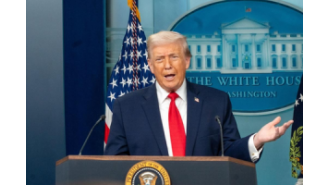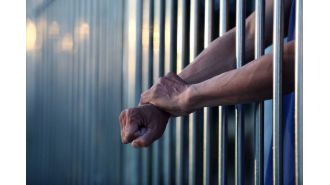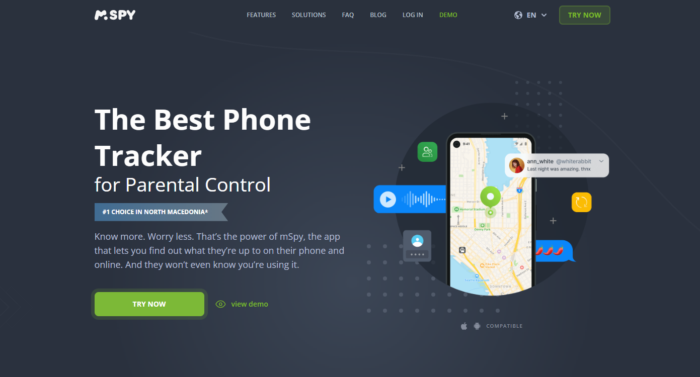Illinois lawmakers pass bill to change state's biometric privacy law.
The law requires companies to get permission before collecting and storing biometric data like fingerprints and retina scans, and is seen as one of the strictest laws of its kind.

The Illinois House has recently passed a new legislation that is aimed at addressing the issue of excessive damages under the state's biometric privacy law. This comes after a year of the Illinois Supreme Court suggesting that the law be revisited by the legislature. The biometric privacy law, which was first enacted in 2008, requires companies to obtain consent before collecting and storing biometric information such as fingerprints or retina scans. It is known to be one of the strictest laws of its kind in the country, as it allows individuals to take legal action against companies for violating their privacy. Notable cases include Facebook's $650 million settlement for its facial tagging feature and Google's $100 million settlement for its facial grouping tool on Google Photos.
The Illinois Supreme Court's decision in February 2023, issued in a case involving fingerprint scanners used by employees at fast-food chain White Castle, sparked the need for the legislature to revisit the language of the law. The court ruled that damages under the law accumulate each time a person's biometric information is collected without prior consent. However, in the majority opinion, the court acknowledged that this interpretation of the statute could lead to potentially excessive damages in cases involving the Biometric Information Privacy Act (BIPA). As a result, they recommended that the legislature review this issue and clarify their stance on damages under the law.
The legislation, which was passed on Thursday, addresses this concern by amending the law to state that a violation occurs and damages accrue only once when a company collects or discloses a person's biometric information without consent, rather than every time. The bill received overwhelming support in the House, with 9 Republicans joining the Democrats in the 81-30 vote. It had previously passed through the Senate with a vote of 46-13 and is now awaiting Governor J.B. Pritzker's approval.
In a statement, a spokesperson for Governor Pritzker stated that he will carefully review the legislation once it reaches his desk. State Rep. Ann Williams, the main sponsor of the bill in the House, emphasized the importance of this measure in addressing the court's invitation to clarify damages under the law. She believes that this is a necessary step in protecting the privacy rights of individuals.
Another House member, State Rep. Abdelnasser Rashid, also defended the bill, stating that it preserves critical privacy protections while providing much-needed clarity for small businesses. He co-sponsored the bill and believes that many small business owners will be relieved to see this measure pass. However, not everyone was in favor of the legislation. In March, a coalition of major business groups issued a statement expressing their disapproval of the legislation in its initial form, stating that it failed to address the thousands of businesses that have already faced lawsuits under BIPA.
Despite some opposition, the Technology & Manufacturing Association, a trade organization for small and mid-sized manufacturers, praised the passage of the bill and called for Governor Pritzker to sign it into law. According to lobbyist David Curtin, this new law will prevent small and mid-sized manufacturers from being subject to devastating lawsuits, ultimately protecting their businesses from closure. With this new legislation in place, it is hoped that the concerns raised by the Illinois Supreme Court will be addressed, and the biometric privacy law will continue to protect the privacy of individuals while providing clarity for businesses.
A recent development in the state of Illinois has caught the attention of many, as the House passed a new legislation on Thursday aimed at addressing the issue of extensive damages under the biometric privacy law. This law, which was originally passed in 2008, requires companies to obtain consent before collecting and storing biometric information such as fingerprints or retina scans. It is known as one of the strictest laws of its kind in the country, as it allows individuals to take legal action against companies for alleged violations. Facebook and Google are among the companies that have been affected by this law, with Facebook paying a hefty $650 million settlement for its facial tagging feature and Google settling a case for $100 million over its facial grouping tool on Google Photos.
The need for this new legislation arose when the Illinois Supreme Court suggested last year that the legislature revisit the language of the biometric privacy law. This suggestion came in the form of a split opinion in a case involving the use of fingerprint scanners by employees at fast-food chain White Castle. The court ruled that damages under the law accrue each time a person's biometric information is collected without consent. However, the majority opinion also acknowledged that this interpretation of the law could lead to excessive damages in future cases and urged the legislature to review the language of the law.
Taking this suggestion into consideration, the House passed the legislation on Thursday, with a vote of 81-30. The bill, which had previously passed through the Senate, will now make its way to Governor J.B. Pritzker's desk for his consideration. A spokesperson for the governor has stated that he will carefully review the legislation before making a decision. State Representative Ann Williams, the main sponsor of the bill, has emphasized the importance of this measure in addressing the issue of damages, as suggested by the court. She believes that this bill provides much-needed clarity and will help small businesses operate in a more predictable regulatory setting.
Another state representative, Abdelnasser Rashid, has also defended the bill, stating that it preserves the critical privacy protections at the core of the law. He also pointed out that it adds clarity for small businesses and will be a relief for many who have been impacted by the biometric privacy law. However, not everyone is in favor of this legislation. A coalition of major business groups has issued a statement expressing their reservations about the bill, stating that it only places limits on financial liability and does not address the thousands of businesses that are still facing lawsuits.
Despite this, the Technology & Manufacturing Association, a trade organization for small and mid-sized manufacturers, has praised the legislation and called for Governor Pritzker to sign it into law. The association believes that this new law will prevent small businesses from being subjected to annihilative lawsuits and will provide much-needed protection for them. Lobbyist David Curtin has also stated that this law will fix the issue of excessive damages and will benefit many 2nd and 3rd generation manufacturers who do not have the resources to fight against such lawsuits. With the passing of this legislation, many small businesses can now breathe a sigh of relief and operate in a more secure and predictable environment.










